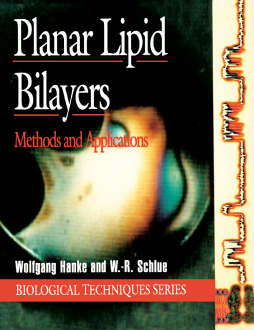
Additional Information
Book Details
Abstract
Biological Techniques is a series of volumes aimed at introducing to a wide audience the latest advances in methodology. The pitfalls and problems of new techniques are given due consideration, as are those small but vital details not always explicit in the methods sections of journal papers.
In recent years, most biological laboratories have been invaded by computers and a wealth of new DNA technology and this will be reflected in many of the titles appearing in the series.
The books will be of value to advanced researchers and graduate students seeking to learn and apply new techniques, and will be useful to teachers of advanced undergraduate courses involving practical or project work.
Methods of constructing artificial membranes (planar lipid bilayers) from the main components of cell membranes (lipids) date from the early 1960s.
Planar bilayers offer direct, quantitative experimental approaches to the study of membranes of precisely determined composition which can be manipulated by the experimenter. Pore-forming molecules, transporter molecules, ATP-dependent enzymes and other entities can be incorporated into the bilayers to simulate biological functions.
Reconstitution of such functions in this way remains a key final step in attributing a functional role to purified cell membrane proteins.
This book aims to demystify these techniques and begins with a broad overview of the development of the subject before dealing with the protocols involved.
Key references are provided at the end of the book together with a list of suppliers.
Full practical details include:
- How to set up conventional painted and folded bilayer experiments
- Patch-dipping methods and use of giant liposomes
- Lipid characterization, preparation and purification
- Discussion of construction of essential apparatus, flux measurements, electrical recording, data acquisition and computer support
- Biochemical methods for use in planar bilayer experiments
- Techniques for incorporation of native proteins and other molecules
